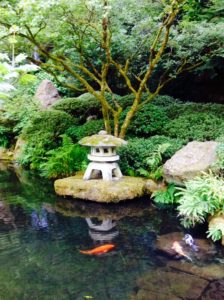I spent much of my childhood in the water. My father was world-class swimmer as a young man and as a result, he made sure that his kids could swim, and swim well. We had a pool in our yard, and every summer, some part of each day was spent in the water. On good days, most of my time was spent in the water. I  remember exploring every nook and corner of the pool–from the dime embedded in the concrete in the shallow end, to the small circle of a drain where the pool was deepest. There were days that I spent so much time underwater that my waterlogged lungs ached when I went to bed at night.
remember exploring every nook and corner of the pool–from the dime embedded in the concrete in the shallow end, to the small circle of a drain where the pool was deepest. There were days that I spent so much time underwater that my waterlogged lungs ached when I went to bed at night.
While I have my own personal love affair with water, I am not alone. Each of us needs water, not only to survive, but to be in balance and thrive at a deeper level. Here are some things to know about water within the context of Chinese medicine:
-The element of water is associated with your Kidney and Bladder–both organs that are tasked with water regulation in your body. In addition, your Chinese Kidney is the deepest of all the organ systems, and is home to the vital substances of Yin, Yang, and Essence. Your seed-shaped Kidneys, plus water, give way to wood, the next element in the five-phase elemental cycle. As such, your Kidney energy is responsible for growth, fertility, and creativity.
-Fluids and the idea of moistness are considered to be vital to your health, and go beyond simply being hydrated. The idea of fluid balance include the health of your blood, lymphatic system, synovial fluid in your joints, amniotic fluid during pregnancy, and the amount of moisture in your bodily tissues.
-When fluids are out of balance, a host of symptoms can crop up and make you miserable. Not enough moisture, and things dry out. Symptoms associated with dryness include dry skin and hair, brittle nails, a dry throat, and constipation. Too much moisture, and you have something called dampness. This is when your body is a little waterlogged, and the excess moisture pools and causes symptoms. Some of the signs of dampness include a feeling of heaviness, edema, yeast infections, oral thrush, athletes’ foot, and moist blistering rashes. In addition, adipose (fat) tissue is considered to be damp, so most people who are very overweight are considered to be carrying around a lot of excess water.
-In Chinese medicine, water is metabolized by an organ system called the Triple Burner (also known as the Triple Heater, Triple Warmer, San Jiao). The Triple Burner works in your body a bit like a double boiler does when you’re steaming vegetables. The top of the pan contains steam, which is similar to the moisture that’s released when you breathe. The middle of the pan where the veggies are cooking is similar to your digestion, where food is being converted into nutrients and energy. And the water in the bottom of the boiler is the runoff–the stuff that you don’t need and is thrown away. In your body, the runoff takes the form of urine or stools. When the fluids in your body become out of balance, one way your acupuncturist can set things right is by treating the Triple Burner.
-Beyond the Triple Burner, Chinese medicine offers a number of other tools to balance water metabolism. Acupuncture can help drain water, resolve dampness, and even generate fluids if you’re dry. There are literally dozens of Chinese herbal formulas that address water imbalances, depending of your specific symptoms and their underlying cause. In addition, food therapy can be an effective way to address both dryness or dampness, because in many cases the problem began with eating too many of the wrong foods.
Finally, make friends with water. Make sure you’re drinking enough, but not too much. Immerse yourself in water, whether through Watsu (Water Shiatsu), swimming, or simply relaxing in a warm bath or hot tub. Step into nature and look at the water…streams, rivers, lakes, the ocean–all feed our physical and spiritual need to connect with water.
As for me, I live in the woods on a creek which I cross every day. I think of myself as living where elemental water feeds wood.



